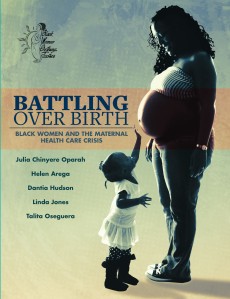Racializing Postpartum Mothers in Breastfeeding Promotional Contexts: An Ethnographic Account from Western Canada

Excerpt from Smith, P.H., Labbok, M., & Chambers, B. (Eds.) (2017). Breastfeeding, Social Justice, and Equity. Amarillo, TX: Praeclarus Press.
Narratives of “race” pervade everyday practices of biomedicine. (The term “race” is in quotation marks to remind the reader of its socially constructed nature.) The professionalization and expanded authority of medical practitioners has enhanced the legitimacy to ascribe race in particular ways (Porter, 1997). Social analysts have shown that clinical praxis is a rich field for the re-inscription of social stereotypes (Berry, 2010; Gilman, 1985), with bodies frequently becoming raced sites (Fassin, 2011). Recent ethnographic work within hospitals shows how raced ideologies often operate unchallenged in clinical domains (Sargent & Erikson, 2014). Studying connections between race and infant feeding within this context is particularly revealing because reproduction and childrearing are intimate places where societal norms and expectations are enforced, as well as targeted sites of reformation for racialized groups (Berry, 2010; Jolly, 1998).
In everyday health care encounters in urban Western Canada, I have observed how particular mothers are singled out for special concern among public health nurses based on judgments of perceived social and biological differences related to their infant feeding practices. My study examined how professional nursing practices “work on” and “create narratives about” specific bodies, particularly lactating and non-lactating mothers. I undertook an ethnographic study to understand if, and how, nursing praxis reinforces and reproduces “facts” of otherness, which has the potential to limit opportunities for particular mothers and infants. My findings indicated that, indeed, mothers are racialized, as seen through the conflation of race, ethnicity, and culture.
Theoretical framework
 Race is a fraught and controversial topic. Hence, it is imperative that I clarify what race and racialization meant in the context of this study. Scientific evidence indicates that race is not biologically and genetically determined, but it is, in fact, a social construct (Marks, 2011). Yet, race—as experienced through racism and discrimination—can have biological consequences (Gravlee, 2009; Krieger, 2000). For example, processes that engender differential care and treatment can lead to poor health outcomes (Chapman & Berggren, 2005). Since breastfeeding disparities and inequities are often understood through categories of race and ethnicity, understanding how deployments of the race concept are used in health care contexts can provide insights into these inequities (Dodgson, 2012). Therefore, I focus on racialization as a way to understand how raced categories operate in breastfeeding promotion programs.
Race is a fraught and controversial topic. Hence, it is imperative that I clarify what race and racialization meant in the context of this study. Scientific evidence indicates that race is not biologically and genetically determined, but it is, in fact, a social construct (Marks, 2011). Yet, race—as experienced through racism and discrimination—can have biological consequences (Gravlee, 2009; Krieger, 2000). For example, processes that engender differential care and treatment can lead to poor health outcomes (Chapman & Berggren, 2005). Since breastfeeding disparities and inequities are often understood through categories of race and ethnicity, understanding how deployments of the race concept are used in health care contexts can provide insights into these inequities (Dodgson, 2012). Therefore, I focus on racialization as a way to understand how raced categories operate in breastfeeding promotion programs.
Racialization is contingent on context, social structures, history, place, space, and time (Fassin, 2011). By racialization, I am referring to identity attribution based on perceived racial characteristics in relation to the prevailing social hierarchy (Fanon, 1952). However, racialization is not a stand-in term for “racist” (Ahmad, 1993). As Didier Fassin explains,
“Ascribing someone racially is therefore not only imposing an identity upon [her]: it is also depriving [her] of possible alternative identifications, including the mere possibility of multiple belongings” (2011, p. 423).
Thus, racialization is a way of exerting power over another, insisting superiority of one’s own racial knowing over the lived experiences of the racialized person (Fanon, 1952). Racialization can be employed for many reasons: to label, appraise, or validate oppressive practices (Fassin, 2011). Thus, racialization is an important aspect to study when looking at social interactions, especially when the terms of contact are related to bodily processes and professional obligations.
Ethnographic context
Over a seven-month period, I conducted ethnographic research in Western Canada. This research included 20 semi-structured interviews, and 30 participant-observation experiences in diverse settings, such as home visits, immunization clinics, committee meetings, and breastfeeding clinics. My study participants were public health nurses who provide home visitation services for postpartum mothers and their infants.
In Western Canada, the government provides universal community-based, public health services for postpartum mothers and their newborns. This means all mothers are eligible to have a telephone assessment and/or home visit within 24 to 48 after hospital discharge. This program is voluntary, and mothers can refuse home visitation services or telephone assessments. The hospital sends a liaison form to the public health unit—with information about the client, such as name, contact information, health and birth history, and feeding plan—letting the nurses know of discharged clients. The program aims to provide continuity of care and assess whether the mother and newborn are physiologically stable, aware of community supports and resources, and if they are in need of breastfeeding support services.
Method
I focused on nurses and their professional practices because biomedical research on breastfeeding primarily assumes that mothers’ practices need analysis, not health care practitioners’ beliefs and practices regarding particular mothers. This discursive reallocation moves us away from paying exclusive attention to racialized mothers’ practices. By shifting the gaze to the culture of public health nurses in Western Canada, I was able to provide contextual accounts of how practitioners racialize mothers.
Throughout all stages of my research, I used Public Health Critical Race (PHCR) praxis in order to pay explicit attention to my own positionality as a clinically trained public health nurse, as well as to the institutional, disciplinary, and biomedical discourses in which I was first trained (Ford & Airhihenbuwa, 2010). PHCR praxis encouraged me to continually critique my research questions and findings in relation to my own positionality and social location as a female, middle-class, heterosexual, able-bodied, “White,” public health nurse. The term White is also in quotations to signify its socially constructed nature. People who are considered White are constructed as such based on specific local histories, which can change over time (Fassin, 2011).
Findings
Most of my participants understood the complicated and multifaceted reasons why mothers may experience difficulties with breastfeeding, and, as a consequence, some of these difficulties were perceived to cause breastfeeding disparities. Yet, when asked who is in need of breastfeeding support, the majority of my participants provided stereotypical, racialized descriptions.
“Boxification” of culture
During participant-observation and interviews, I observed and asked my participants about their public health nursing practices in relation to breastfeeding disparities and inequities. The issue of culture was a common refrain in relation to breastfeeding disparities. Yet the issue of breastfeeding inequities was typically not broached. The nurses cited that mixed feeding styles were indicative and unchangeable for particular racialized mothers. These behaviors were also equated to people who had particularly “ethnic” last names. As such, many public health nurses were racializing mothers by their last names and infant feeding styles by over-determining those attributes to the mothers’ culture.
This essentializing practice is not unheard of. In fact, Van Esterik (2012, p. 56), a Canadian cultural anthropologist and breastfeeding advocate, argues that the main breastfeeding textbook for health professionals encourages the “boxification of culture” in an attempt to educate practitioners to be culturally competent. Instead of promoting quality care, the focus on cultural knowing creates essentialized, static groups by not recognizing the diversity amongst people. These cultural stereotypes concomitantly racially box particular mothers’ infant feeding practices, because culture is commonly conflated with categories of race and ethnicity in health care contexts. In fact, culture has come to be known as a proxy for race (Hannah, 2011).
My aim is not to throw out the culture concept altogether, but to highlight when it is used, and for whom. The problem of culture was suggested as a reason for breastfeeding disparities during all of my interviews, except for one. In fact, culture was typically brought up as a way to juxtapose non-White groups’ infant feeding practices to normative—read White—Canadian mothering practices. Therefore, most discussions surrounding culture had to do with racialized mothers.
Conclusion
These examples show how infant feeding styles can be presumed fixed and unchangeable based on an assessment of a mother’s culture-cum-race. Thus, racialized mothers’ may experience victim-blaming because their real-life everyday breastfeeding challenges may not be acknowledged. Furthermore, the lack of acknowledgment may perpetuate the status quo based on the belief of culture-cum-race as pathology, not other more salient reasons, such as differential treatment and care based on static, essentialized, and racialized depictions.
Acknowledgements
My fieldwork and program of study were supported by the Government of Canada (SSHRC CGM, #GXSO118), the Canadian Nurses Foundation (Military Nurses of Canada Scholarship), and The Dr. Djavad Mowafaghian Foundation Endowment Fund (the Faculty of Health Sciences Child Health Practice and Research Award).
The content of this paper is solely the responsibility of the author, and does not necessarily represent the official views of the above funding agencies.
See the book for the full references.
Alysha McFadden is a certified public health nurse in British Columbia, Canada who has studied and worked in the United States, Northern Canada, and Haiti. She recently completed a Master of Science degree at Simon Fraser University in the Faculty of Health Sciences, specializing in medical anthropology, breastfeeding, and nursing practices. Due to her diverse education, work, and volunteer experiences, Alysha has developed unique perspectives on global, and local, health disparities and inequities, which continue to inform her clinical practice and research interests. Her goal is to improve public and population health programs and services, specifically by completing a PhD in Nursing, and becoming an expert in the area of infant, child, and maternal health, with a specialization in breastfeeding and health equity.
She aims to translate nursing research into practice by making it accessible to policy makers, health care providers, as well as the general public. Currently, Alysha is a Clinical Associate at UBC School of Nursing providing clinical instruction for students in their population health rotation.






















1 Pingback